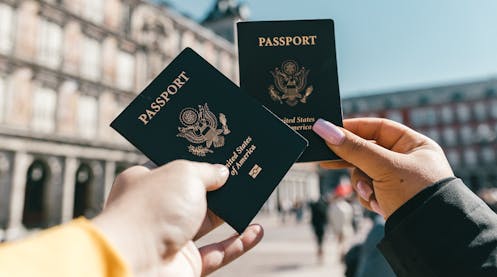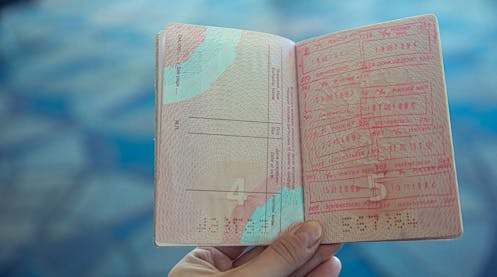Visa Acquisition
RESIDENT VISA

In What Cases Can A Resident Visa Be Refused?


In What Cases Can A Resident Visa Be Refused?
Procedure For Obtaining
RESIDENT VISA
Issue of an entry permit to the UAE for an individual entity before they arrive in the UAE.
Arrival of a person in the UAE. Iris-scanning and photo after the arrival. Obtaining stamps of entry into the country. Providing data to government agencies and Immigration Service about the arrival of an individual.
Passing a medical examination in one of the authorized medical institutions for the detection of diseases that are not compatible with the issuance of a resident visa. At this stage, a blood sample is taken from the vein and a fluorography is performed. This step usually takes 2-4 days. Then the medical institution issues a certificate stating that “the person is healthy and fit to live in the UAE” or “not fit to live in the UAE”.
After medical examination, a person draws up an Emirates ID, where all relevant biometric and passport information about him is stored. To obtain this identification card, a person must go to one of the state identification centers and submit their biometric data (fingerprints, retinal scan, profile photo).
The issuance of ID takes approximately 4-5 weeks. However, for resident visa it will be enough to provide a copy of the confirmation document from the identification center, which is issued to everyone after the submitting biometric data procedure.
Now you have a certificate from an authorized medical center and a confirmation from the Emirates ID identification center. You need to apply for a resident visa in the UAE.
MAINTAING UAE RESIDENT STATUS
To maintain an active resident status, the following conditions must be met:
- Your visa must not be expired.
- If you are an investor permanently situated outside the UAE, you must visit the UAE at least every 6 months.

The Resident Status Gives Permission To
To maintain an active resident status, you must fulfill the following conditions:
- Officially reside in the UAE.
- Obtain a tax resident certificate from the UAE Ministry of Economy to exempt yourself from paying taxes in your country of permanent residence.
- Rent a house in the UAE.
- Establish mobile and internet services in the UAE.
- Open a bank account in the UAE.
- Obtain a driver's license in the UAE.
- Enroll children in schools in the UAE.
- Apply to government agencies in the UAE, ensuring that you visit the country at least once every 6 months.


Permissions That Resident Status Gives
To maintain an active resident status, you must fulfill the following conditions:
- Officially reside in the UAE.
- Obtain a tax resident certificate from the UAE Ministry of Economy to exempt yourself from paying taxes in your country of permanent residence.
- Rent a house in the UAE.
- Establish mobile and internet services in the UAE.
- Open a bank account in the UAE.
- Obtain a driver's license in the UAE.
- Enroll children in schools in the UAE.
- Apply to government agencies in the UAE, ensuring that you visit the country at least once every 6 months.

